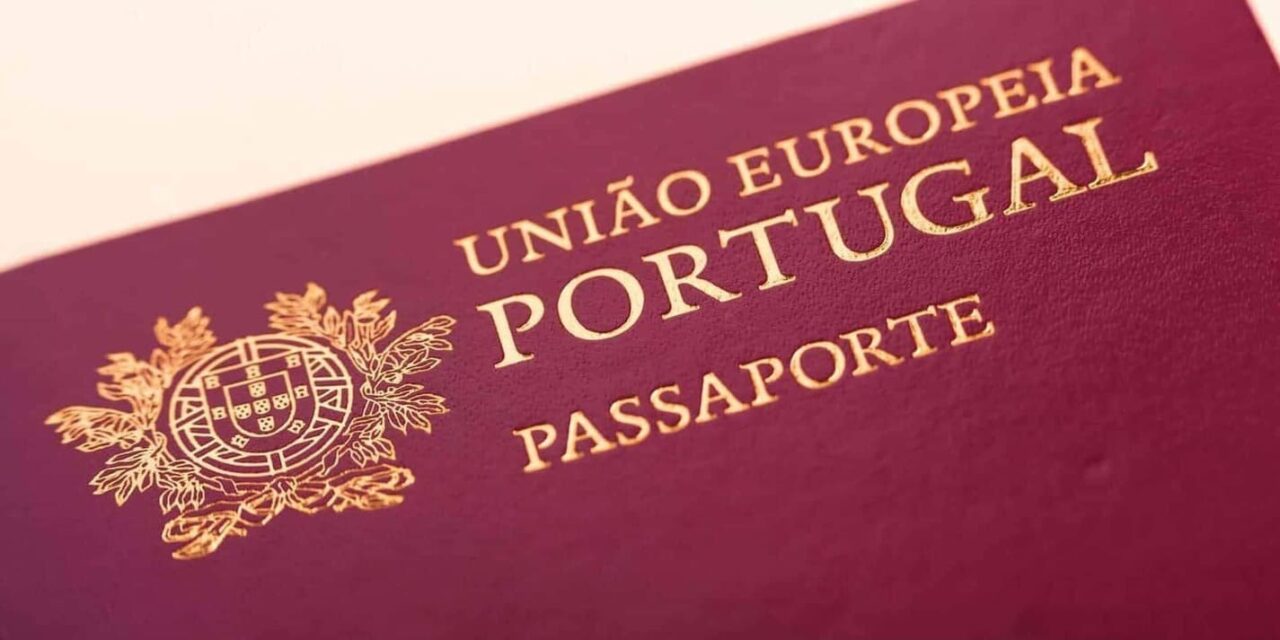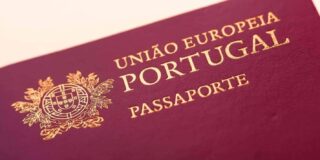Portugal, renowned for its rich history, vibrant culture, and thriving economy, has become a hotspot for expatriates seeking career opportunities in Europe.
A Portugal work visa is the gateway for non-EU/EEA citizens to work and legally reside in the country. Whether you’re a skilled professional, a seasonal worker, or a highly qualified expert, understanding the intricacies of Portugal’s visa system is crucial.
This guide explores everything you need to know about securing a Portugal work visa, including the different types and pathways to permanent residency and citizenship.
You’ll also find out more about:
- Who needs a work visa in Portugal?
- Short-term vs. long-term Portuguese work visas
- Complete list of Portugal work visas
- How each Portugal work permit compares
- Processing time and fee
Who needs a work visa in Portugal?
A work visa in Portugal (D-Type visa) is required for non-EU/EEA nationals who plan to live and work in the country for an extended period. In some cases, you must secure the appropriate visa based on the nature of your employment or business activities.
However, citizens of European Union countries don’t need a work visa, as they can live and work freely in Portugal under the freedom of movement agreements within the EU. Generally, the EU Blue Card is necessary for this, or they simply need to register with local authorities after arrival.
Working legally in Portugal mandates a specific work visa, regardless of your visa-free entry privileges. Overstaying or working without authorization can lead to fines, deportation, or bans on future entry. A work visa is just one of the many Portugal visa types.
Short-Term vs. Long-Term Portuguese Work Visas

Portugal offers a variety of work visas tailored to different employment durations and professional goals.
Understanding the distinction between short-term and long-term work visas is critical for choosing the right pathway, complying with legal requirements, and aligning one’s plans with the Portuguese government’s immigration laws.
Short-term work visas
A short-term Portuguese work visa is designed for temporary employment and is typically valid for up to one year.
It suits professionals engaged in seasonal work, project-based contracts, or roles requiring a limited time commitment.
Short-term work visas do not generally lead to permanent residency, and holders must leave the country upon expiration unless they transition to a long-term visa.
Long-term work visas
A long-term Portuguese work visa is intended for employment lasting more than one year and often serves as a stepping stone to permanent Portuguese residency and citizenship.
This category caters to professionals relocating for indefinite roles, entrepreneurs, and highly skilled workers. Examples include the D1, D2, Tech Visa, and EU Blue Card.
Long-term work visas require more comprehensive documentation, such as employment contracts, proof of financial stability, and background checks.
| Criteria | Short-Term Work Visa | Long-Term Work Visa |
| Validity | Up to 1 year | 2 years (renewable) |
| Renewal | Not renewable; must reapply from abroad | Renewable in Portugal for up to 5 years |
| Residency Pathway | No direct eligibility for permanent residency | Leads to permanent residency after 5 years |
| Family Reunification | Generally not permitted | Permitted for immediate family members |
| Work Permit Complexity | Simplified process for temporary roles | Rigorous labor market tests are required, if applicable |
| Financial Requirements | Lower proof of funds needed | Higher financial stability and salary thresholds |
Complete List of Portugal Work Visa Categories

Portugal offers several work visas tailored to different professions, employers and situations. These cater to everybody, from seasonal workers to highly skilled professionals and freelance service providers.
How to get a work visa in Portugal will depend on the specific Portugal work visa requirements and whether the position is for EU vs non-EU citizens.
D1 Visa (General Work Visa)
The most common work visa is the Portugal D1 Work Visa, which requires a formal employment contract with a Portuguese company before you can begin the application process.
Once you secure a job, your employer will initiate the visa process by applying for your work permit through the Portuguese Labor Authorities (Autorização de Trabalho).
After the authorities approve your work contract, you must apply for a work visa to enter Portugal at the Portuguese Embassy or Consulate in your home country.
The validity of your visa depends on your nationality and the terms of your employment contract, and it requires your physical presence in Portugal.
Suppose your employment contract lasts longer than six months. In that case, you must apply for a temporary residency permit before your visa expires to maintain your legal residency and work status in Portugal.
The specific type of residency permit you will need depends on the nature of your employment contract.
| Eligibility | Non-EU/EEA citizens with a formal job offer |
| Requirements | Proof of employment, qualifications, and background checks |
| Validity | Initially issued for one year, renewable |
| Path to residency | Eligible for permanent residency or citizenship after five years of residence |
D2 Visa (Entrepreneur/Independent Professional Visa)

Portugal’s D2 Visa, the Entrepreneur or Independent Professional Visa, is tailored for individuals outside the EU/EEA who wish to establish a business, provide services, or invest in Portugal.
It is especially popular among entrepreneurs, freelancers, and independent service providers. The visa offers professionals and business owners a pathway to reside and operate within Portugal while contributing to the local economy.
A key D2 Visa application process component is presenting a well-structured business plan. You must demonstrate that their proposed business is economically viable and will benefit the country.
This could involve creating jobs, contributing to local development, or investing in innovative projects. Different routes exist for eligibility, including being an independent professional with a contract in Portugal, an entrepreneur planning to start a new venture or a participant in the country’s Startup Visa program.
| Eligibility | Non-EU/EEA entrepreneurs, freelancers, and independent professionals |
| Requirements | Business plan, proof of financial means, and either a contract or investment |
| Validity | Initial two-year visa, extendable for another three years |
| Path to residency | Eligible for permanent residency or citizenship after five years of residence |
D3 Visa (Highly Qualified Activities Individuals)
The D3 Visa, also known as the HQA Visa, is a long-term residence visa offered by Portugal to attract non-EU/EEA nationals with specialized skills, advanced degrees, or significant professional experience.
It is specifically designed for individuals who have secured a job offer or employment contract within highly qualified positions in Portugal. This may include roles in scientific research, technology, technical professions, or high-level management.
To apply, you must demonstrate your qualifications and provide evidence of your professional or academic expertise, such as degrees or professional certifications.
You must also present a contract or formal job offer from a Portuguese company or institution that reflects your eligibility for the highly qualified role.
| Eligibility | Highly skilled non-EU/EEA professionals with a job offer in Portugal |
| Requirements | Advanced degrees, professional experience, job offer in a qualified role |
| Validity | Minimum one year, renewable |
| Path to residency | Eligible for permanent residency or citizenship after five years |
D8 Visa (Digital Nomad Visa)
The D8 Visa is a residency option designed for remote workers, freelancers, and entrepreneurs who wish to live in Portugal while working for companies or clients outside the country or be self-employed.
You must demonstrate a stable income that meets or exceeds the minimum threshold, typically set at around four times Portugal’s minimum wage, working out to €3,480 per month.
Eligible income can come from remote employment, freelance work, business ownership, pensions, or other financial sources. You must also show proof of accommodation and valid health insurance for your stay.
The initial visa is valid for one year, with the option to renew for two years. After five years of legal residence, D8 Visa holders may apply for permanent residency or Portuguese citizenship, provided they meet all requirements, including language proficiency.
| Eligibility | Remote workers, freelancers, and entrepreneurs with income from outside Portugal |
| Requirements | Proof of stable income (€3,480/month), health insurance, and accommodation |
| Validity | Initial 1-year stay, renewable for successive 2-year periods |
| Path to residency | Permanent residency or citizenship is available after five years of residence |
Job Seeker Visa

Portugal’s Job Seeker Visa is a relatively new visa category that aims to attract skilled non-EU/EEA workers who want to enter the country to seek employment.
It allows you to reside in Portugal for a set period while actively seeking a job without securing employment before arrival. This visa is part of Portugal’s strategy to address labor shortages and bring in talent across various sectors.
You must demonstrate sufficient financial resources to support yourself during your stay, typically through bank statements or proof of savings. You must also provide documentation of accommodation plans and obtain health insurance covering the duration of the visa.
No job offer is needed at the time of application, but once employment is secured, the visa holder must convert the visa into a residence permit.
The Job Seeker Visa is valid for 120 days, with the possibility of a one-time extension of 60 days. During this period, you are expected to actively search for and secure employment. If successful, you can transition to a long-term residence permit based on your employment contract.
| Eligibility | Non-EU/EEA individuals seeking work in Portugal without a prior job offer |
| Requirements | Proof of financial means, health insurance, and accommodation plans |
| Validity | 120 days, extendable for another 60 days |
| Path to residency | Convert to a residence permit upon securing employment |
E8 Visa (Seasonal Work Visa)
Portugal’s E8 Visa, or Seasonal Work Visa, allows non-EU/EEA individuals to work in Portugal for short-term periods exceeding 90 days but no longer than 270 days.
It is aimed at the agriculture, tourism, and hospitality sectors, which have a high demand for seasonal workers.
You must present a valid contract from a Portuguese employer or temporary work agency detailing the job role, location, duration, and compensation. Additionally, proof of accommodation, health insurance, and sufficient financial means to support yourself is required.
Extensions are not typically allowed; you are expected to leave Portugal once the visa period ends. While the E8 Visa offers valuable short-term employment opportunities, it does not lead directly to permanent residency or citizenship.
| Eligibility | Non-EU/EEA nationals with a job offer in seasonal sectors. |
| Requirements | Employment contract, proof of accommodation, financial means, health insurance. |
| Validity | 90 to 270 days, non-renewable. |
| Path to residency | No direct path to residency or citizenship. |
EU Blue Card

The EU Blue Card is a work and residence permit designed for highly qualified non-EU/EEA professionals seeking employment in a member state of the European Union, including Portugal.
It aims to attract top-tier talent in sectors requiring advanced skills and specialized knowledge, such as information technology, engineering, healthcare, and scientific research.
To be eligible, you must possess a higher education degree or demonstrate at least five years of relevant professional experience. You must have secured a job offer in Portugal that meets or exceeds the minimum salary threshold, typically 1.5 times the national average gross annual salary. The employer must prove that an EU citizen could not fill the position.
The Blue Card is initially valid for up to two years, with the possibility of renewal as long as employment is maintained. One of its key benefits is that holders can apply for permanent residency or Portuguese citizenship after a minimum of five years of residence in Portugal.
| Eligibility | Highly qualified professionals with a degree or five years of work experience. |
| Requirements | Job offer meeting salary threshold, proof of qualifications, and employment contract. |
| Validity | Up to two years, renewable. |
| Path to residency | Permanent residency or citizenship is possible after five years. |
How Each Portugal Work Permit Compares
Navigating Portugal’s visa options is crucial for non-EU citizens seeking to work, invest, or live there. Each visa serves different purposes, catering to skilled workers, entrepreneurs, digital nomads, and seasonal laborers.
The table below comprehensively compares Portugal’s most popular visa options, including the EU Blue Card, outlining key details such as eligibility, requirements, validity, and long-term residency paths. This guide helps you find the visa that fits your goals and professional background.
| Category | D1 Visa | D2 Visa | D3 Visa | D8 Visa | Job Seeker Visa | E8 Visa | EU Blue Card |
|---|---|---|---|---|---|---|---|
| Eligibility | Non-EU citizens with a job offer from a Portuguese employer | Non-EU/EEA entrepreneurs, freelancers, and independent professionals | Highly skilled non-EU/EEA professionals with a job offer | Remote workers, freelancers, and entrepreneurs with income from outside Portugal | Non-EU/EEA individuals seeking work without a prior job offer | Non-EU/EEA nationals with a job offer in seasonal sectors | Highly qualified non-EU citizens with a degree or 5+ years of experience |
| Requirements | Employment contract, proof of qualifications, financial means | Business plan, proof of financial means, and either a contract or investment | Advanced degrees, professional experience, job offer in a qualified role | Proof of stable income (~€3,280/month), health insurance, and accommodation | Proof of financial means, health insurance, and accommodation plans | Employment contract, proof of accommodation, financial means, and health insurance | Job offer meeting salary threshold, proof of qualifications, and employment contract |
| Validity | One year, renewable annually | Initial two-year visa, extendable for another three years | Minimum one year, renewable | Initial one year, renewable for successive two-year periods | 120 days, extendable for another 60 days | 90 to 270 days, non-renewable | Up to two years, renewable as long as employment conditions are met |
| Path to Residency | Eligible for permanent residency after five years. | Eligible for permanent residency or citizenship after five years. | Eligible for permanent residency or citizenship after five years. | Permanent residency or citizenship available after five years of residence. | Convert to a residence permit upon securing employment. | No direct path to residency or citizenship. | Permanent residency or citizenship possible after five years. |
Portuguese Work Visa Fees and Processing Time
Generally, Portugal’s Agency for Immigration, Migration and Asylum (AIMA) can take up to 60 days to process a work permit application and two to three months for the Portuguese Embassy to issue an entry visa.
However, this largely depends on which visa you are applying for, as some could be processed quickly depending on your specific circumstances.
There is more than one fee you have to pay when applying for a Portuguese work visa.
- Cost of the entry visa issued by the Portuguese Embassy – €90 (may be subject to change from country to country)
- To apply for a Portugal residence permit at AIMA – €83
- To receive the residence permit from AIMA – €72
We advise you to check the exact fees on the Portuguese Embassy website in your country. Also, check if they accept money in cash or if you can pay with a credit card to avoid surprises on the submission day.
What is the duration of a work visa?
A typical Portugal work visa (D1 Visa) is initially valid for one year, renewable annually as long as employment is maintained. Other visas, such as the EU Blue Card, are renewable and valid for up to two years. Seasonal and job-seeker visas have shorter durations, ranging from 90 to 270 days.
Does a Portugal work permit lead to permanent residency in Portugal?
Yes, most work visas, such as the D1 Visa and EU Blue Card, provide a pathway to permanent residency. After five years of continuous legal residence and meeting certain criteria, including financial stability and legal compliance, you can apply for permanent residency.
Does a work visa lead to Portuguese citizenship?
Yes, after five years of legal residence through a work visa, you may be eligible to apply for Portuguese citizenship, provided you meet additional requirements, such as passing a basic Portuguese language test and demonstrating integration into Portuguese society.
Can I work in Portugal as an international student?
Yes, international students in Portugal holding a student visa can work part-time for up to 20 hours per week during the academic year and full-time during holidays and breaks.
Can I work in Portugal if I have a family visa?
Yes, if you hold a family reunification visa, you can legally work in Portugal. Family members of work visa holders or EU Blue Card holders have the right to live, study, and work without requiring a separate work permit.
Is it easy for Americans to work in Portugal?
It can be relatively straightforward for Americans to work in Portugal if they secure a job offer or qualify for visas like the D1 Work Visa, Portugal D7 Visa (for passive income earners), or EU Blue Card. However, the process involves gathering proper documentation and meeting visa criteria.
Is it hard to get a job in Portugal as a foreigner?
It depends on your qualifications, language skills, and the sector. IT, tourism, healthcare, and education tend to have better opportunities. However, without Portuguese language proficiency, job options may be limited. Skilled professionals with experience and degrees have better chances.
Can I work in Portugal as a non-resident?
Technically, you need a valid visa to work legally. Non-residents can work temporarily under specific conditions, such as seasonal or remote work. Long-term work requires obtaining the appropriate work visa or residence permit.
Can you work in Portugal if you only speak English?
Yes, but your job opportunities may be limited to industries like tourism, international companies, tech, and teaching English. Fluency in Portuguese broadens job options, particularly in government-related or local business sectors. However, there are plenty of international companies based in Lisbon, Porto, or Braga that employ English-speaking workers.
Can I live in Portugal without a job?
Yes, you can live in Portugal without a job if you secure a visa such asthe D7 Visa (for retirees or passive income earners) or the Portugal Golden Visa (through investment). However, you’ll need to demonstrate sufficient financial resources to support yourself for the D7 Visa and need to invest the qualifying amount to be eligible for a Golden Visa.





